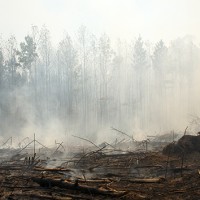
Our thoughts and well wishes are with everyone in the state of Oregon, around the Pacific Northwest,
and specifically those in affected areas from the large number of wildfires burning. The amount of loss
is already greater than most of us has seen in our lifetimes.
With the state of emergency so high one of the things Crook County residents can do to protect yourself
and your friends and family is sign up for Crook County Emergency Alerts. You will receive a notice
when there is an emergency or disaster in your area. If Central Oregon was to experience wildfire now
this alerting system will send out alerts of potential evacuations and emergency updates. You can sign
up through your local Sheriff’s office anywhere in Central Oregon, so if you live in one county and work
in another you can sign up for both so that you know what is happening all around you.
***** To sign up for emergency alerts in Crook County please visit https://co.crook.or.us/sheriff and
click on the “Alert Crook County” Icon to sign up or update your login.
As the wildfires around our state continue to burn, the air quality will become more hazardous. Crook
County public health officials urge people across the state to take precautions as smoke from wildfires
affects the air quality and may be harmful. The current conditions are expected to get worse through
the weekend and last into early next week.
“The combination of high temperatures and wildfire smoke in our area may increase the risk of illness
especially for older adults, young children, and people with asthma, respiratory, or heart conditions,”
said Muriel DeLaVergne-Brown, RN, MPH, Crook County Health Department Director.
Public health officials urge all Crook County residents to take the following precautions to avoid health
problems during hot, smoky conditions.
o Reduce the amount of time spent outdoors. This can usually provide some protection, especially
in a tightly closed, air-conditioned house in which the air conditioner can be set to re-circulate
air instead of bringing in outdoor air.
o Reduce the amount of time engaged in vigorous outdoor physical activity. This can be an
important and effective strategy to decrease exposure to inhaled air pollutants and minimize
health risks during a smoke event.
o Reduce other sources of indoor air pollution such as burning cigarettes and candles; using gas,
propane, and wood burning stoves and furnaces; cooking; and vacuuming.
o Individuals with heart disease or lung diseases such as asthma should follow their health care
providers’ advice about prevention and treatment of symptoms.
Effects of smoke exposure
o Particles in the air can irritate the eyes, nose, and throat, causing cough, phlegm production,
wheezing, difficulty breathing, headache and inflammation in the lungs.
o Most healthy adults and children will recover quickly from smoke exposure and will not suffer
long‐term health consequences.
o Persons with compromised airways such as lung disease are at risk for exacerbations.
o Persons with heart disease may experience shortness of breath, chest tightness or pain,
palpitations, or unusual fatigue or lightheadedness.
o Children are at higher risk from smoke exposure, because they tend to spend more time
outside, engage in more vigorous activity, and inhale more air per pound of body weight.
o Pregnant women are at increased risk of adverse health effects, as is the developing fetus.
o Persons age 65 and older are more likely to have pre‐existing heart or lung disease, and have a
greater risk than younger persons of hospitalization and premature death associated with
smoke exposure.
Helpful tools:
✓ For more information about your community’s air quality, visit: http://airnow.gov/
✓ Refer to the Oregon Smoke Blog: http://oregonsmoke.blogspot.com for smoke
information in your area as a tool to help guide your health behaviors and actions.
Here is a cost effective method to help filter your air – information and videos on DIY air filters on
Oregon Smoke blog: http://oregonsmoke.blogspot.com/2020/09/protect-yourself-from-wildfire-
smoke.html
For more information or general questions contact:
Vicky Ryan
Emergency Preparedness Coordinator – Crook County Health Department
Crook County Public Information Officer
vryan@h.co.crook.or.us
541-323-2467 – Direct line
541-233-8504 – Work Cell















